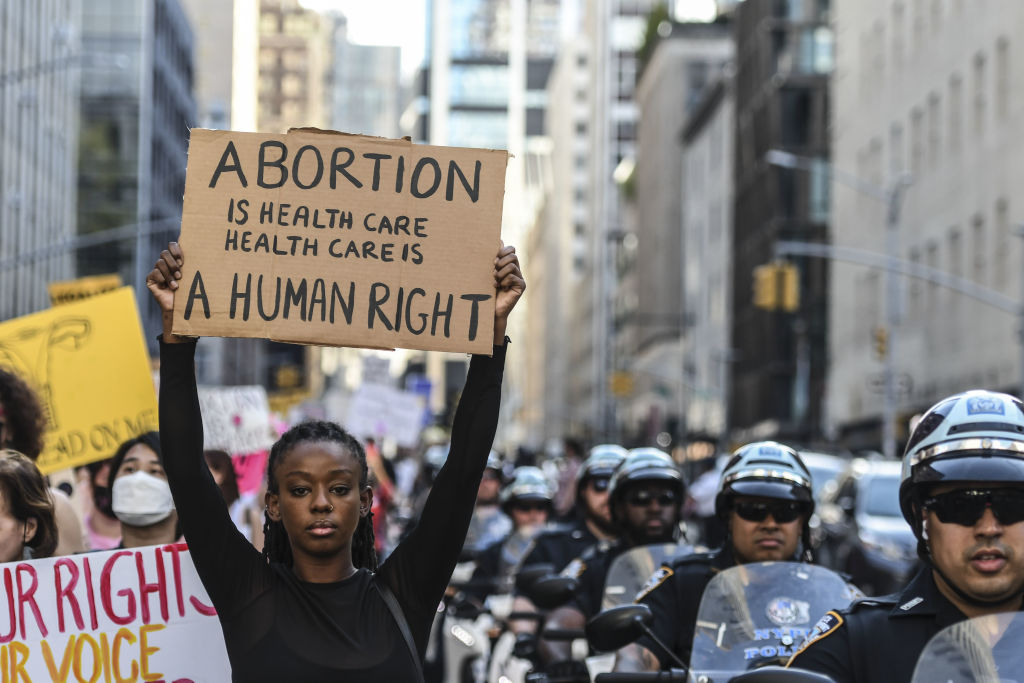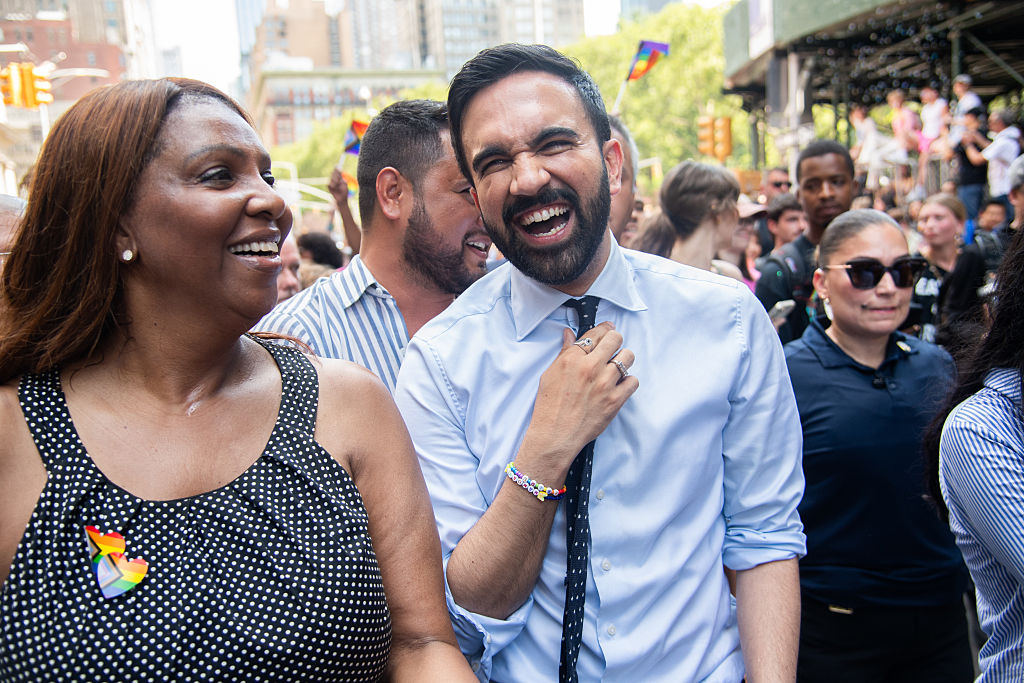Dobbs Anniversary: Decision's Effect On Black Women, Girl Lingers
On 1-Year Anniversary Of Dobbs Decision, Black Girls And Women Remain Critically Vulnerable
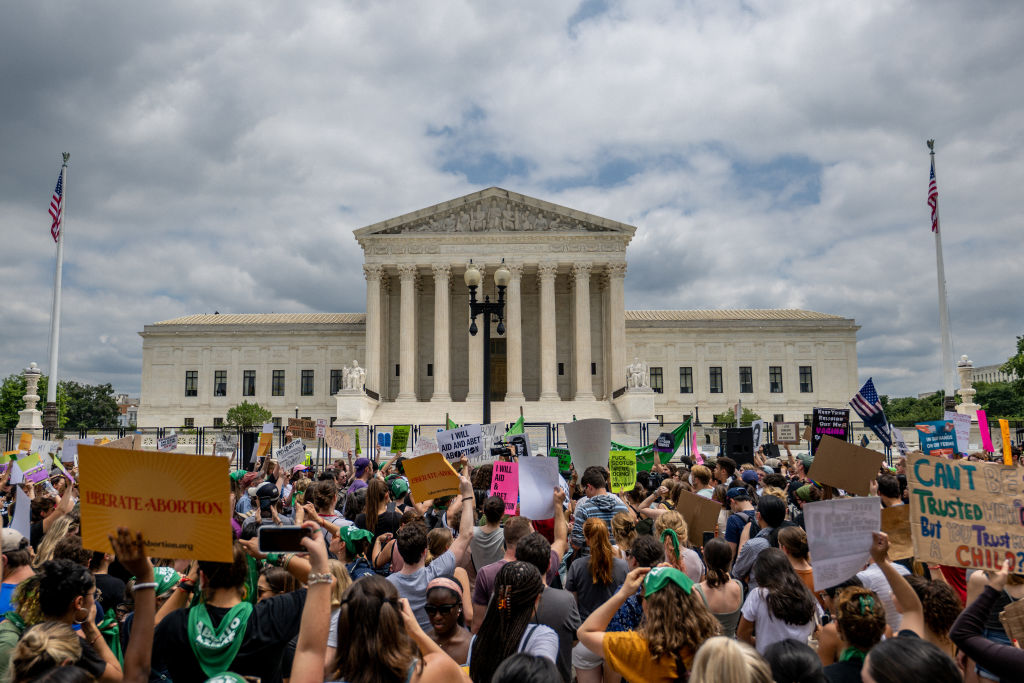
People protest in response to the Dobbs v Jackson Women’s Health Organization ruling in front of the U.S. Supreme Court on June 24, 2022, in Washington, D.C. | Source: Brandon Bell / Getty
One year after the U.S. Supreme Court decision in Dobbs v. Jackson Women’s Health Organization, which overturned a woman’s constitutional right to an abortion, and thereby enabled states to pass anti-abortion laws, the consequences to women, and Black women and girls specifically, have been catastrophic. There are countless stories of women being turned away from healthcare facilities to have to manage by themselves either an unwanted or what will inevitably be an unsuccessful pregnancy and, in some cases, also a life-ending event for them.
The Dobbs Decision has robbed many Americans of not only their vision of a prosperous future, where through hard work, dedication, and the support of strong social welfare and public services, they would be able to thrive and, when they are ready, to create the happy families of their choosing, but also—and more importantly—of their bodily autonomy.
In a post-Dobbs world, the options for Black women have been grossly limited.
Restrictions on bodily autonomy in the Americas can be traced as far back as chattel slavery and colonialism, when enslaved Black girls, like Anarcha, Lucy, and Betsey, were dehumanized, tortured and abused against their will by early white physicians and research scientists, to develop our modern, Western practice of gynecology. Wrought by ideologies of white supremacy and fascism, the medical disregard and mistreatment of Black girls and women has extended from colonial times throughout our nation’s history.
Therefore, to say that Black girls and women have traditionally been unheard and underserved by the U.S. healthcare system is an understatement. It is abundantly clear when one looks at clinical and public health data that demonstrates the high maternal mortality rate for Black women, the higher incidence of chronic health conditions, such as high blood pressure and hypertension, diabetes and cardiovascular disease and high levels of stress among Black women.
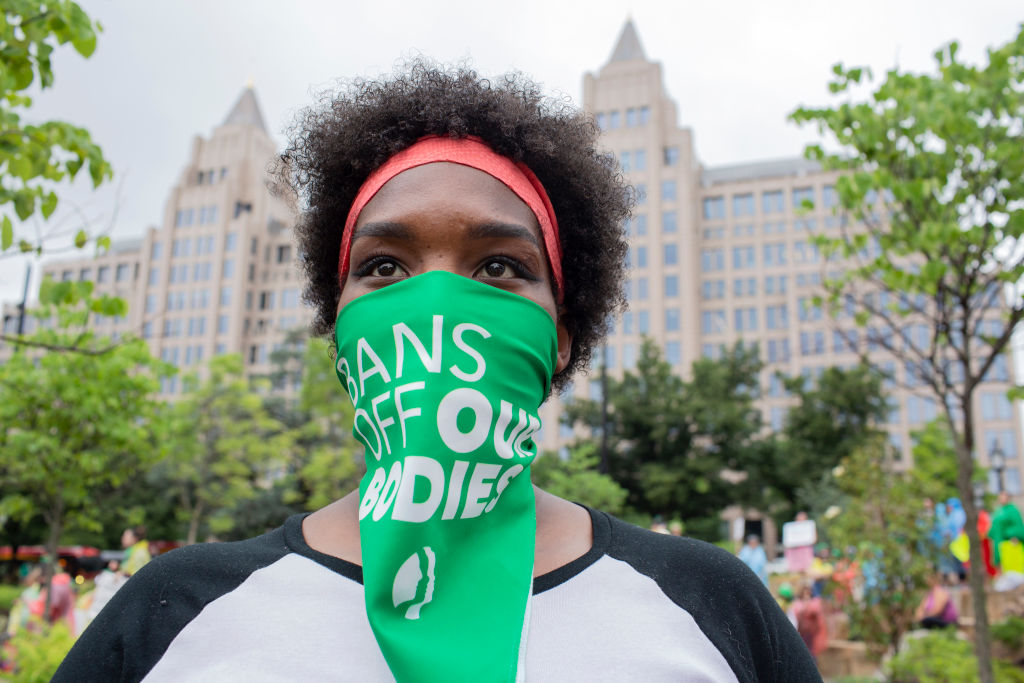
An abortion-rights activist listens to speakers before a march to the White House to denounce the U.S. Supreme Court decision to end federal abortion rights protections. | Source: Probal Rashid / Getty
Black girls and women are routinely denied equitable medical care in clinical spaces, often having their pain and other symptoms ignored or downplayed by healthcare providers. Or, are treated differently due to race-based clinical algorithms, which, per the American Medical Association (AMA), “reinforce racial essentialism and the historical, social, cultural and economic biases that exacerbate health inequity.” These health disparities are compounded by the fact that most Black women have lower access to comprehensive health insurance, including Medicaid, and predominantly live in states that do not guarantee a living wage, paid parental or family leave, paid sick days, or protections for pregnant parents at work.
These deplorable conditions were prevalent for Black girls, women and people with uteruses before Dobbs when Roe v. Wade afforded us a precarious yet clear constitutional right to an abortion. But, in a post-Dobbs world, the options for Black women have been grossly limited.
We must continue to advocate for a healthcare system and services that are just, equitable, affordable.
And, rather than working collectively to repair the bridges between Black Americans and our healthcare system, Dobbs has done exactly what everyone from patient advocates to physicians to politicians knew would occur–erode patient-physician relationships leaving millions with little or no access to safe reproductive health services while criminalizing patients and physicians.
It is beyond time that we all stand up and stop these draconian laws and enforcement, so we can transform our healthcare system into one where all people have the power, circumstances, and resources to achieve optimal health. With a deep understanding of how racial and gender inequities manifest in our healthcare system from providers to insurers to pharmaceutical and biotechnology companies, Race Forward has joined in partnership with the American Medical Association, the Institute for Healthcare Improvement and others to launch Rise to Health: A National Coalition for Equity in Health Care. Working with health equity practitioners across the healthcare ecosystem, we are cultivating a movement for racial justice within medicine from the inside-out, knowing that it will take many constituencies to achieve and enact transformative, sustainable change.
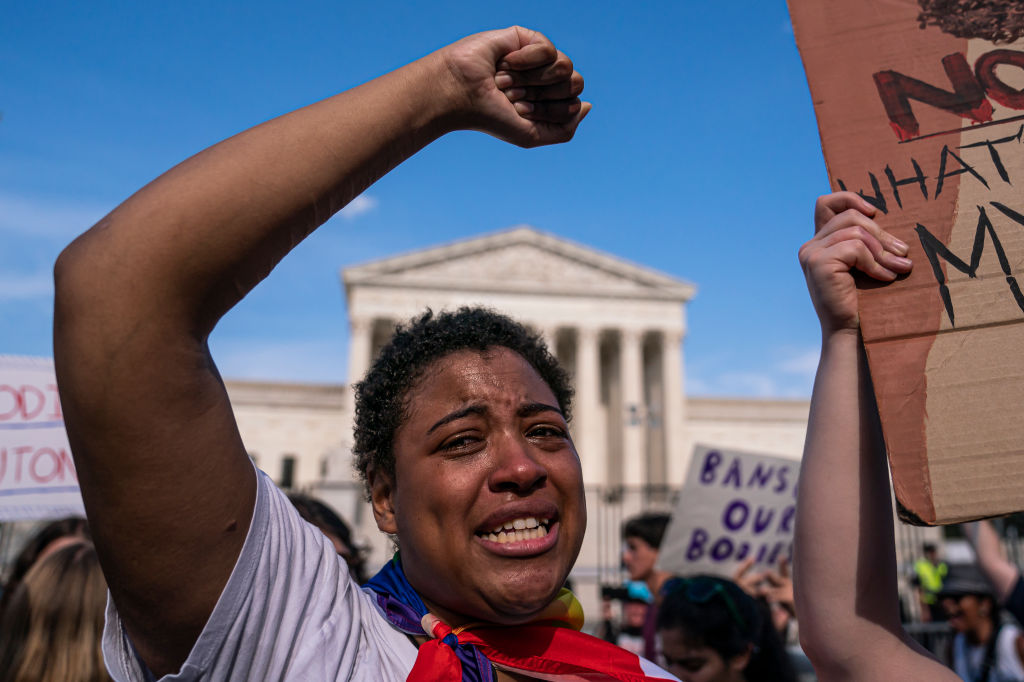
In front of the Supreme Court on June 26, 2022. | Source: Nathan Howard / Getty
And, this is a task that every American can and should contribute to, if they believe every person should be treated with dignity, tenderness, bodily autonomy and mutual respect in a clinical setting.
First, we must never resign ourselves to a system where Black girls, women, and people with uteruses cannot get the reproductive healthcare they need. That means that regardless of what’s happening in individual states, we must continue to advocate for a healthcare system and services that are just, equitable, affordable, and not driven by greed. Second, we must elect officials who share our values and believe all women and families have a right to receive the healthcare they need and to live in healthy neighborhoods. And, third, we must commit ourselves to building the beloved community that can sit with, listen to and support Black girls, women and people with uteruses throughout all phases of their lives with substantive, life-affirming public policies, goods, services and infrastructure.
Cheryl Cato Blakemore is Vice President, Strategic Communications and Public Engagement at Race Forward.
Jane Mantey, Ph.D., is Director, Narrative, Arts, and Culture at Race Forward.
SEE ALSO:
On 1-Year Anniversary Of Dobbs Decision, 3 Ways The Ruling Continues To Haunt Black Women
